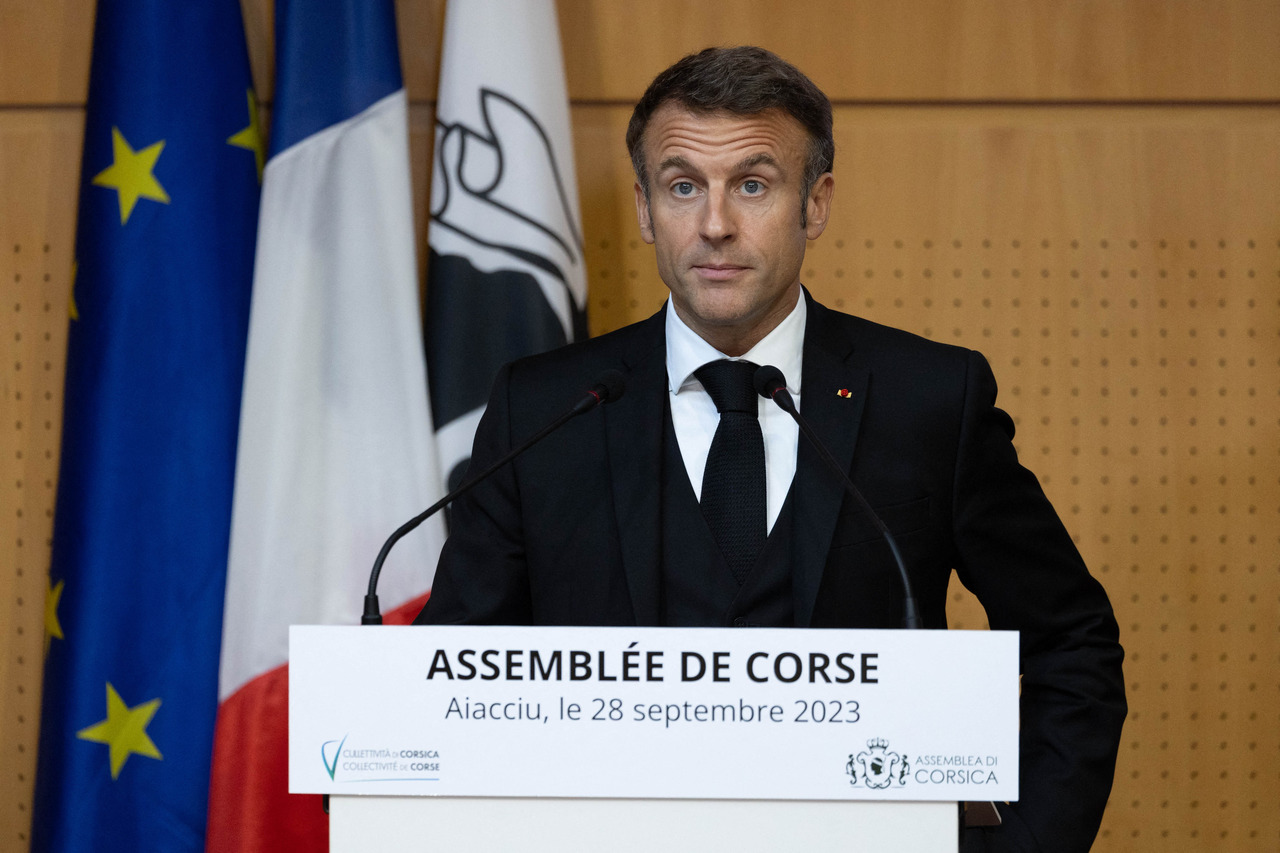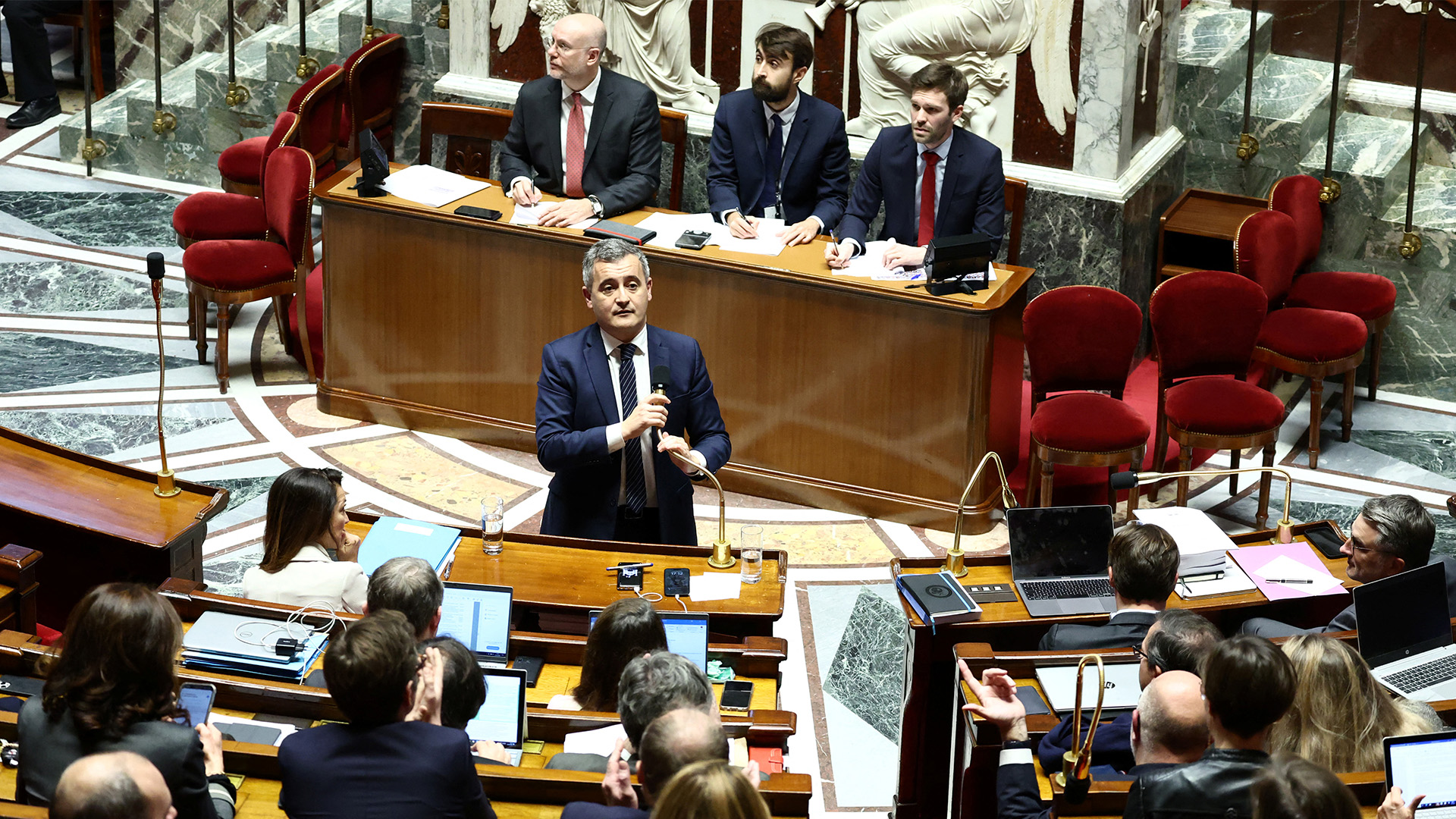President Macron Dissolves National Assembly After Defeat in EU Elections
The far-right National Rally secured a significant win in the European Parliament elections in France. The defeat of the ruling party led President Emmanuel Macron to dissolve the National Assembly and announce a snap election. The far-right has a chance to achieve a majority, enabling the formation of a new government.
 Christian Hartmann / Reuters / Forum
Christian Hartmann / Reuters / Forum
What was the outcome of the European Parliament elections in France?
The far-right won the EU Parliament elections in France by a clear margin. National Rally (RN), led by Jordan Bardella, secured 31.4% of the vote, winning 30 seats (+7 compared to the 2019 election). The presidential Renaissance party suffered a severe defeat, receiving only 14.6% of the vote and securing 13 seats, signalling a lack of French support for Macron’s policies, despite his involvement in the campaign. The 13.8% of votes (13 mandates) achieved by the Socialist Party-Place Publique (PS) was the best result on the left. La France Insoumise (LFI), a far-left party, improved its 2019 result, receiving 9.9% of the votes cast (9). The centre-right Republicans (LR) received 7.2% of the support (6 seats), the Ecologists got 5.5% (5), and another far-right party, Reconquête, also won 5.5% (5). Turnout reached 51.5%, a slight increase from 2019 (50.1%), marking the highest result in EU elections in 30 years, attributed to the increased mobilisation of the protest electorate.
What are the reasons behind the extreme right’s high score?
More than 7.7 million voters cast their ballots for National Rally. This result is the outcome of Marine Le Pen’s successful efforts to normalise the party’s image, leading to a change in how voters perceive the party as capable of governance without threatening democracy. As a result, RN has strengthened and significantly expanded its support base, as more social groups have started to relate to the party’s platform. The lack of success of the president’s camp can also be attributed to the choice of Valérie Hayer as the leader of the list. She is a politician with low recognition and influence within the party, and her campaign was overshadowed by the president and prime minister. The RN list received a high score from its traditional electorate, which is concentrated in rural areas and small towns. As of 2019, manual labour workers were the most represented group. The party also succeeded in attracting new voters, particularly among retirees, executives, and residents of major cities, capitalising on voters’ concerns about France’s domestic politics. The far-right focused its campaign message mainly on domestic issues, such as immigration, security, purchasing power, and agriculture, turning the European elections into a referendum for or against President Macron’s policies.
Why did President Macron dissolve the National Assembly?
Due to his side’s electoral defeat, President Macron decided to dissolve the National Assembly (AN) and call new elections to be held in two rounds of voting, on 30 June and 7 July. This decision aligns with RN’s call for parliament’s renewal and comes after the presidential camp’s struggles in implementing its policies and negotiating its proposed reforms. After the 2022 elections, Macron’s camp and its coalition partners had a relative majority. This allowed the government to pass laws without a vote using Article 49-3 of the constitution, or to seek broad political support in the chamber. Due to the growing popularity of far-right and anti-government sentiments, the president’s team anticipated that parliamentary work would be disrupted. This was expected to make it challenging to approve the budget in the second half of the year and could lead to several motions of no-confidence in the government. The president appears to see that dissolving the Assembly early would benefit his camp by preserving his political capital, winning back voters, and mobilising non-voters. The brief election campaign will also complicate potential coalition talks between opposition parties, particularly considering the crisis on the left caused by the escalating political disagreements among the parties that form the NUPES bloc. Macron also hopes to build an informal coalition against the far-right, which he perceives as a threat to French democracy and France’s future in the EU.
What are the implications of the dissolution of the National Assembly for the French political landscape?
With his decision to dissolve the AN, Macron risks losing his majority in the chamber and allowing, for the first time in the history of the Fifth Republic, the far-right to formulate a government after the elections. The most likely scenario is the emergence of a parliament in which no party holds an absolute majority. According to the Harris Interactive poll published on 10 June, RN holds a significant lead with 34% of the vote, compared to the second-place coalition of left-wing parties NUPES, which has 22%. The president’s camp has 19% of the votes cast, and the Republicans have 9%. This means that RN is projected to have a relative majority in the Assembly, with an estimated 235 to 265 seats compared to 89 in the previous legislature. A win by RN could result in another period of cohabitation, in which the president and prime minister come from opposing political camps. RN President Bardella is campaigning as the party’s candidate for France’s new prime minister. A potential victory for the RN in the parliamentary elections will also impact the electoral dynamics in the 2027 presidential elections, in which Marine Le Pen has announced she will run. The president’s increased campaign commitments will limit his involvement on the international stage in the coming weeks. The defeat of Macron’s party also weakens his position within the EU, especially with the upcoming negotiations to fill the EU institutions for another term.





